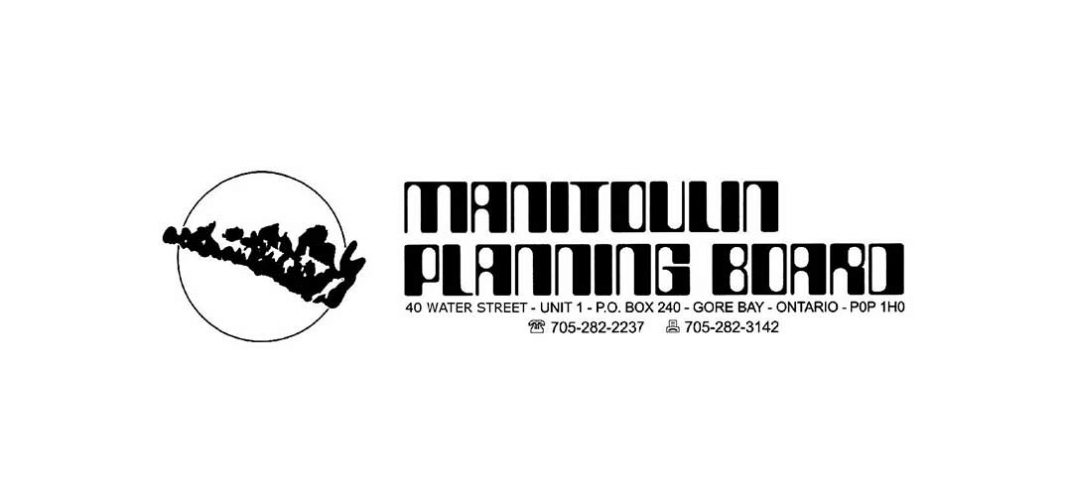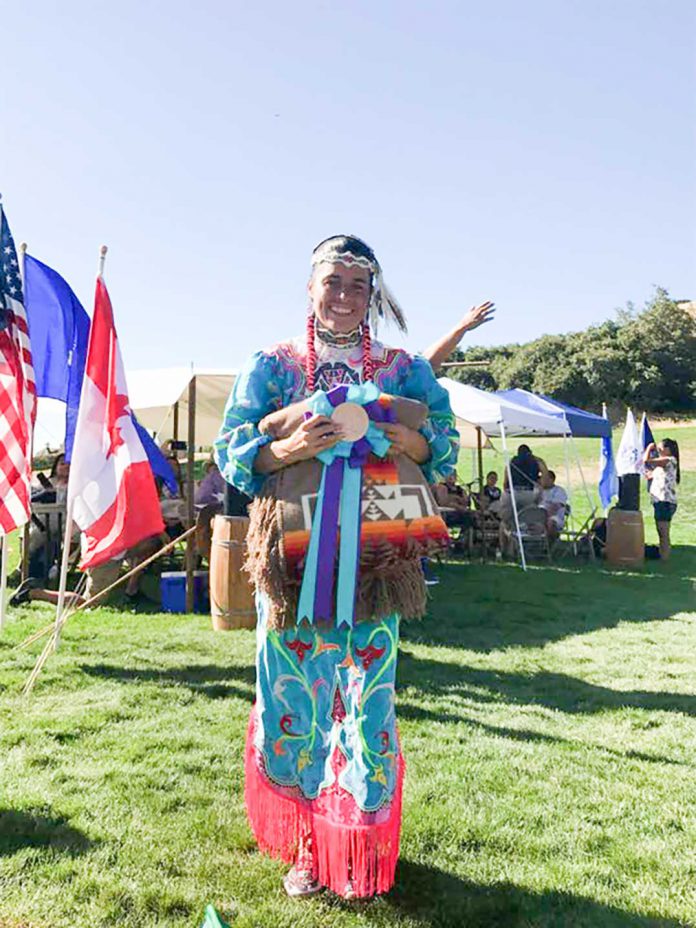GORE BAY—The Manitoulin Planning Board (MPB) is in agreement with recommendations made by its consultant in regards to the Official Plan and Indigenous involvement in the planning process (as part of the Official Plan (OP)), that will be forwarded to the Ministry of Municipal Affairs and Housing (MMAH).
“In the end it will be good for all of us,” stated Richard Stephens, a member of the MPB, at a board meeting held last week.
“I think what is now being proposed is a great improvement to what had been offered to us earlier,” said Doug Head.
Theresa Carlisle, MPB secretary-treasurer told the board that after its recent meeting with the MMAH where modifications had been suggested to the board, Jake Diebolt, MPB GIS technician and the board’s consultant looked at the modifications that had been presented.
Previously this year the MMA provided a list of modifications the draft OP. Concerns were raised by the board that included among them the modifications going beyond those in place for NEMI and the provincial planning act in regards to consultation (on the planning process). The board forwarded its concerns and this summer the ministry held meetings with the United Chiefs and Councils of M’Nidoo M’Nissing (UCCMM) and Wiikwemkoong, in relation to concerns the latter two had. Ms. Carlisle and Mr. Diebolt along with board consultant Greg Bender have had teleconference calls with the MMA.
“The gist of this whole thing is that we are down to one section of the (OP) that is of concern,” said Ms. Carlisle. She noted recommendations have been suggested by the consultant.
“One question that keeps coming up in my mind is that it is stated that we will confer with First Nations on planning matters and applications,” said Doug Head. “Do we have to talk every First Nation community on applications or just those involved-adjacent landowners that would be affected?”
Mr. Diebolt noted he feels the province’s rationale is because of the current land claim process going through by the UCCM and Wiikwemkoong the process and communities listed there could be potential impacts.
Board chair Ken Noland pointed out if any land claims are put in place, it will be legislated and anything in the land claim will supercede the planning act.
“The provincial policy statement includes engagement with First Nations,” said Ms. Carlisle. “What engage means is open to interpretation. But it is the Crown’s responsibility to engage (with First Nations in these cases) not necessarily the planning board’s.”
“For individual reserves the UCCM speaks for all the local First Nations except for Wiikwemkoong,” said Paul Moffatt.
What has been recommended by the MPB consultant is that Indigenous communities would be engaged in applications that meet the First Nations concerns and what they have an interest in.
This would include any planned development applications involving First Nations, the board was told.
Mr. Diebolt said under the recommendations any archaeological assessments and cultural heritage that Indigenous communities would be shared with the MPB.
It is also recommended, the board will circulate all planning act documents received for early consultation to the Indigenous communities listed in accordance with the Planning Act. Indigenous communities will acknowledge the receipt of the documents received and will identify potential concerns within 30 days of receiving the circulation on any planned development applications.
“From our perspective, as staff (of MPB), on applications we take preconsults for instance from the Sudbury District Health Unit, Ministry of Transportation, MNRF. We’re okay with providing 30 days for comments to be received from the UCCM and Wiikwemkoong,” said Ms. Carlisle.
Mr. Diebolt noted that in relationship to engagement protocols with First Nations communities, what is being proposed by the consultant, is that Indigenous communities (UCCMM and Wiikwemkoong) would together-draft a framework or protocol that they would agree on. “The First Nations would then come to us with the framework-protocol and there would be no time limit set on this.”
“So, basically will be agreement on the part of the Indigenous communities before they approach the board,” said Mr. Diebolt.
“Is this the first time a planning board has come to this type of protocol?” asked Mr. Stephens.
“It’s a refinement of the requirements,” said Mr. Diebolt. He indicated there is one in place for Grand River, and it was established in 2000.
Mr. Noland stated, “this is basically the same thing we were saying back in February, that we needed to develop protocols that make sense. It’s acceptable to me.”
Ms. Carlisle explained as for as the 30 day preconsultation, “we are suggesting that Indigenous communities have 30 days to comment on applications. If there are no comments then we process the application that has been filed as we normally do.”
Mr. Diebolt explained the MMA wants to give Indigenous communities enough time to comment on applications. And the Indigenous communities feel the current 14 days is not enough time.
“I read the highlights of the proposal to the ministry and Indigenous communities and I don’t have a lot of problems with it,” said Ian Anderson. “I like the use of the word will in seeking to establish an Indigenous engagement protocol in supporting the land use planning engagement process. But I expect there will be some pushback.”
Mr. Anderson expressed concerns on whether there is a dispute resolution in place.
It was pointed out the planning board has authority to give authority to applications, and anyone with concerns can appeal decisions to the Ontario Municipal Board as has always been the case.
“So, what does the board feel, should we approve these recommendations-approval?” asked Mr. Noland. “We’ve spent five years dealing with the official plan, a little longer won’t mean anything at this point. We have two ways to go on this, we can say we want the same thing that NEMI has in their (official) plan and say anything else is not acceptable; or can we live with what has been proposed to us here. The board would have to accept the protocol presented and there would be negotiations with the UCCM and the MMA,” said Mr. Noland.
“It doesn’t bother me that we consult with someone else,” said Mr. Head. “I do like the idea that the protocol would come from the Indigenous communities first.”
“They would then be able to make comments that we could take into consideration and make decisions on in accordance with the Planning Act,” said Mr. Noland.
The MPB passed a motion unanimously, that
the comments-recommendations provided by Mr. Bender be sent to the MMA for their consideration.a





